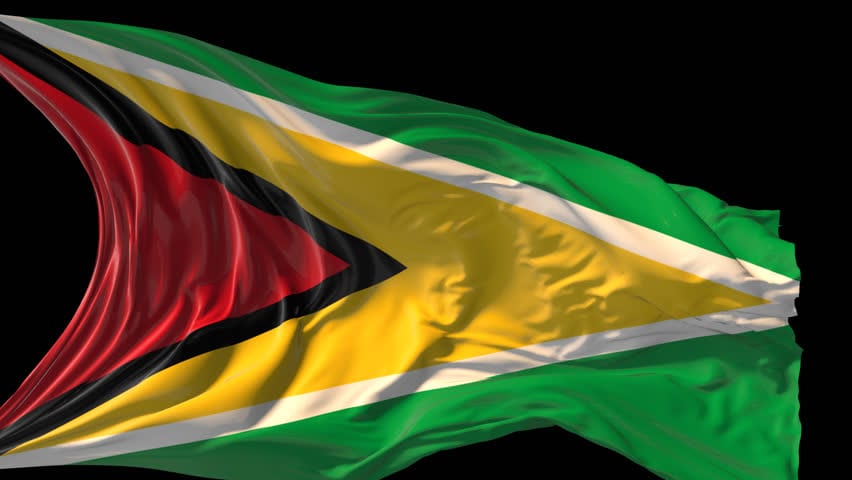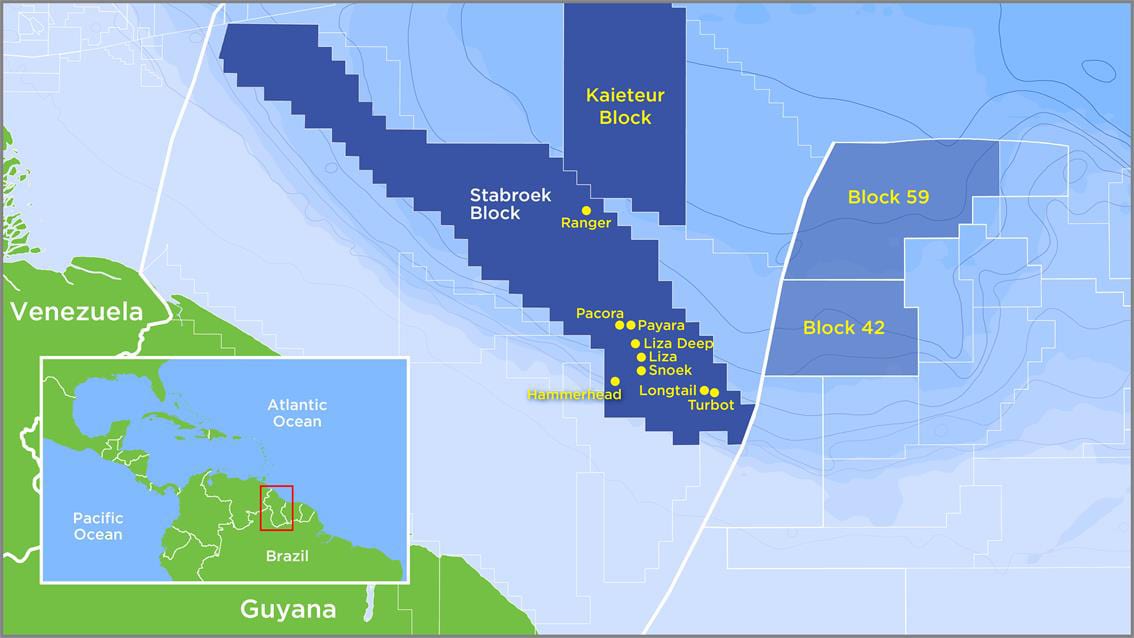
New Developments in Guyana’s Oil Production Along Venezuela’s Border
The small country of Guyana, perched along the northern coast of South America, continues to be the most important new oil territory in the world, with ExxonMobil announcing its 10th discovery of significant recoverable oil in less than four years. They now estimate that there is more than 5 billion barrels of recoverable oil in the country’s offshore Stabroek Block. Commercial production could begin as soon as the last quarter of 2019, rising to perhaps 750,000 barrels of oil per day by 2025.
As I wrote in ASP’s October report, “Guyana: Building Sustainable Security,” Guyana is poised to become one of the largest producers of oil, per capita, in the world, outpacing even world leaders like Kuwait and Abu Dhabi. A surge of wealth has not always been beneficial to small, poor countries like Guyana, I wrote then about ways that Guyana is taking steps to avoid a “Resource Curse.”
While many of the problems of resource rich nations stem from mismanagement of energy resources, one of the greatest threats to Guyana’s future prosperity actually comes from outside its borders. Its western neighbor, Venezuela, has consistently opposed development in Guyana, using a vast territorial claim to the Essequibo region – a claim that would reduce the size of Guyana by nearly 2/3s. For more about the threat and size of the Venezuelan claim, watch ASP’s October event discussing oil and geopolitics in Guyana.
In a notable development, this year has seen confirmation of a deliberate tilt by the United States toward Guyana in the border controversy. For years, the American position had been to argue for a “timely resolution” of the border controversy. Now, as confirmed by American Embassy in November, the American position is to now to “call on all parties to respect the 1899 arbitration decision” that set the borders where they are now. ASP Board Member David Wade and I argued in an Examiner OpEd that the U.S. could use improved relations with Guyana as a secret weapon in the campaign against Venezuela.

The successful oil finds in Guyana’s Stabroek Block. (Hess Corporation image)
This backing will be important, as it appears that Guyana and the oil production consortium are now subtly defying the Venezuelan claim. Most of the oil exploration to date has been in the Eastern side of the Stabroek Block, far from the Venezuelan border (see map). Now, ExxonMobil has announced new exploration along the Western side, well into the area that Venezuela claims. Throughout December, the consortium has put out a maritime notice that up to six vessels would commence seismic work in the western end of the Stabroek Block. Notably in 2013, the last time exploration was undertaken in this area by Anadarko Petroleum, the Venezuelan Navy seized the exploration ship.
As the International Court of Justice considers how to rule on the controversy, the Guyanese side appears to be building a case for showing their possession of the territory by using it. In fact, Guyana’s Minister of Natural Resources, has frequently said the Stabroek Block was part of their strategy against Venezuela’s border claim.
Perhaps it is appropriate that Guyana’s future will be determined by a confrontation with Venezuela. As Guyana prepares to embark on its rapid development into an oil power, it must strain to escape the history of the failed development in too many other poor countries. There is no better poster candidate for the resource curse than Venezuela, which show shows how vast oil production can ultimately destroy a country. Where once Venezuela was the wealthiest country in South America, it is now a bankrupt shell, spreading instability throughout the region. Venezuelans are fleeing the country as hyperinflation rages while basic services like health care and food distribution fail. Meanwhile, the country has become a haven for transnational criminals and the government has become implicated in humanitarian abuses As Guyana’s Kaieteur News writes about ASP’s report, Venezuela’s crisis should serve as warning to Guyana: do not fall into the trap Venezuela finds itself in.





